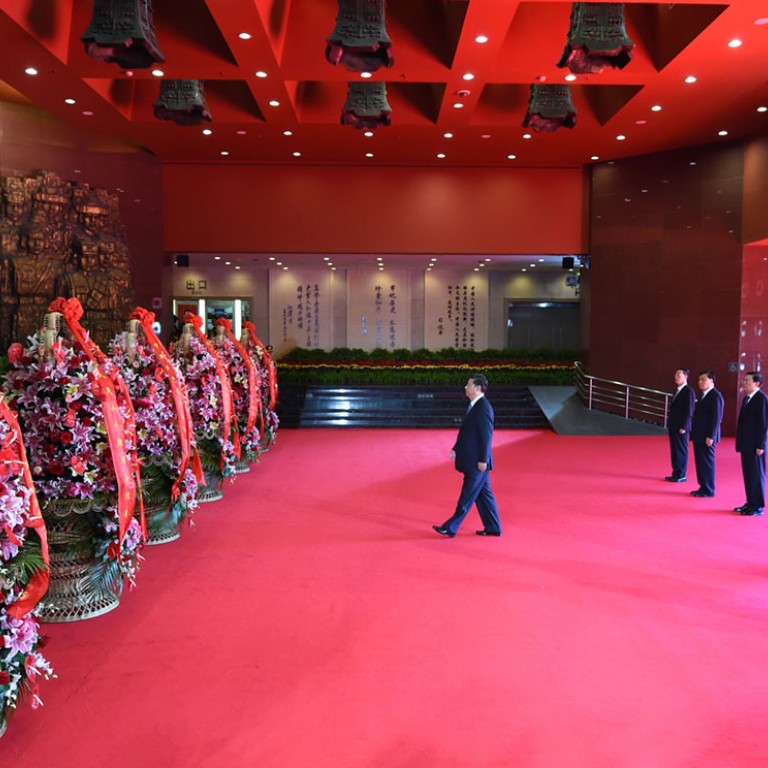
Honouring KMT sacrifices in Sino-Japanese war seen as blow against revisionism
Finally recognising Nationalist sacrifices in the Sino-Japanese war could be welcome first step in renouncing policy of revisionism
The Communist Party of China, having inherited the Soviet-style framework of writing history, has long used historical revisionism to advance its political and ideological agenda.
For instance, mainland history books have all significantly played up the war effort by the Communist army and played down the contributions of the Nationalist forces during the second Sino-Japanese war.
But last week's decision by Beijing to honour more than 90 Nationalist, or Kuomintang, soldiers and foreigners as among 300 martyrs of the Chinese War of Resistance against Japanese Aggression, also known as the Sino-Japanese war, indicates that leaders have begun to realise the need to respect historical facts. State-run media immediately took note of the development to trumpet the leadership's "courage" to "seek truth from the fact[s]".
said it marked "a breakthrough that should have been made many years ago".
"Belated as it is, the official acknowledgment of their historical status as martyrs sends the message that this country and [the] government [are] starting to face the historical truth," it said.
"The list shows honest respect to history," the said. "It presents a record free of ideological influence or the historic conflict between the Communist Party and the Kuomintang."
The official said: "By paying tribute to all those who fought for the nation, regardless of their political beliefs or nationality, the Communist Party has shown it has given up its narrow thinking and is now putting the interests of the nation first.
"The move will in turn help China's reunification efforts," it said, in a reference to Beijing's regard for Taiwan as a renegade province awaiting reunification.
"The list will also grant China's youngsters new knowledge about China's spirit of perseverance that helped the nation to survive," said.
During that war, the Kuomintang army played a key role in China's battlefields, tying down Japanese forces.
Historical accounts showed that about 3.2 million Kuomintang soldiers died.
Historians also believe that the Communist contribution to the war effort was narrow, because of its limited manpower of 30,000 troops under the umbrella of the Kuomintang's more than four-million-strong armed forces.
The Communists were also known deliberately to avoid large-scale direct fighting against the Japanese, while conducting guerilla warfare and political activities in occupied territories to expand their base areas.
But under an ideology-dominated system, most mainlanders were brainwashed to believe that it was Mao Zedong who led the army to fight and win the war against the Japanese invasion, while Chiang Kai-shek, the supreme allied commander in China, was a coward whose army did not want to fight back.
But perhaps because of the need to win KMT support in its reunification effort, Beijing was forced to adjust its long politically motivated historiography.
The recognition of the Kuomintang's war effort is a first step towards respecting history and seeking justice for those who died for the country.
Still, Beijing also owes it to the people to publicise facts about major historic events such as the Great Leap Forward, the famine, the Cultural Revolution and June 4 crackdown in 1989 - even if it risks undermining the party's image and the legitimacy of its rule.
As Paul Rand, a graphic designer turned philosopher, once said: "Facts are facts. Sugar is sweet - it's not a matter of opinion. It just is."
China's current leaders should also take note of Abraham Lincoln's words: "You can fool all the people some of the time and some of the people all the time, but you cannot fool all the people all the time."

